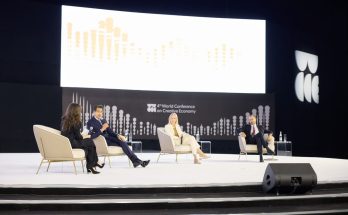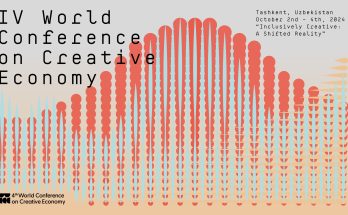 The carnival of celebrations has drowned the din of protest that threatened to ruin the world’s biggest party in Brazil. While sporadic protest continue, the world’s attention has rapidly shifted away from the protests to the stadia where the beautiful game has managed to draw the attention of over a billion viewers from around the globe.
The carnival of celebrations has drowned the din of protest that threatened to ruin the world’s biggest party in Brazil. While sporadic protest continue, the world’s attention has rapidly shifted away from the protests to the stadia where the beautiful game has managed to draw the attention of over a billion viewers from around the globe.
As the soccer frenzy continues in full flow, it has become clear that this world cup will be remembered for the swift, attacking football so characteristic of Brazil. With no shortage of goals scored, the elimination of an uninspiring England and a lacklustre Spain will not dampen the football fiesta. With the host Brazil all set to make its way into the round of 16 the pains of hosting the world cup seem to have abated.
The Challenge
Hosting a global event like the FIFA World Cup was always set to challenge a developing country like Brazil. The South American nation wanted to flaunt its growth and dynamism to the world by bidding and winning the hosting rights for FIFA’s showcase event in 2007. FIFA president Sepp Blatter was then sceptical about Brazil’s capability to host the world’s most viewed event. But he was persuaded by Brazil’s dazzling footballing history: winners of a record 5 world cup titles, hosts of the 1950 World Cup, and the birthplace of a galaxy of football legends.
Brazil’s charm as a footballing nation partly comes from its ability to showcase football as joga bonita – the beautiful game — both on and off the field.
Football in Brazil represents a platform for all the virtues of sports: equality, hard work, merit and opportunity. Indeed the story of legends in Brazil is often the story of young boys who beat the odds of birth and unfavourable social structures to reach the pinnacle of the game. Brazilian legends like Pele, Ronaldo, Zico, Romario and Ronaldinho, among others, are legends partly because their story is the story that most kids from unprivileged background wish to share. They showed that football could be a magical tool for upward social mobility. We watch because their story resonates with us. It could have been ours.
The Reality beyond the Dream
 But not all manage to escape reality. According to the World Bank data, as of 2012, 15.9% of Brazil’s population lives below the poverty line. Brazilians’ minimum wage is less than $315 a month. Further, in the build-up to the World Cup, favela settlements –- where the poorest sections of urban Brazilians stay — were systematically demolished in order to ‘clean up’ their cities. The marginalization of the poorest section of the society from access to the economic growth and infrastructure is a cause for justified grievances.
But not all manage to escape reality. According to the World Bank data, as of 2012, 15.9% of Brazil’s population lives below the poverty line. Brazilians’ minimum wage is less than $315 a month. Further, in the build-up to the World Cup, favela settlements –- where the poorest sections of urban Brazilians stay — were systematically demolished in order to ‘clean up’ their cities. The marginalization of the poorest section of the society from access to the economic growth and infrastructure is a cause for justified grievances.
The middle and lower-middle class have their own problems. Bogged down by the high tax burdens, decreasing quality of infrastructure, and an annual inflation rate of 6.5%, they, too, appeared skeptical about the world cup. Reports of massive corruption, mishandling of public funds and astronomical expenditure for the world cup have frustrated many. The fact that the Brazilian government has spent around $11.5 billion, more than thrice the amount spent by South Africa hosting the 2010 tournament, has undermined its credibility.
With the eyes of the world fixed on Brazil, it was a perfect time for the disgruntled to have their voices heard and demands met. They timed the protest brilliantly, even hogging headlines for a while. Most fans around the globe were appalled by the agitprop blitz about the social inequality and corruption that managed to mar the image of FIFA and Brazil.
 However, protests that drew large crowds, especially from Brazil’s middle class, during the Confederation Cup in 2013, seem to have been decreasing in size. Most protests now have broken into smaller clusters, each with their own agenda. Some of them have turned violent.
However, protests that drew large crowds, especially from Brazil’s middle class, during the Confederation Cup in 2013, seem to have been decreasing in size. Most protests now have broken into smaller clusters, each with their own agenda. Some of them have turned violent.
The interest generated by the protests lost steam as the tournament has picked up pace. While reports of protests continue to attract media attention, the high scoring games, the on field football frenzy, and off field celebrations have blunted them.
Let the Feet do the Talking
This world cup has been about the quick attacking football, which is the spirit of Joga Bonito. With the world’s eyes continuously fixated on the football the frustrated protesters will have to be louder to win back the world’s attention. It was always a difficult task to keep the attention once this much awaited tournament started.
But the tournament is far from over. Protesters still have a couple of weeks to reclaim the world media’s attention. Yet, if they fail now, they will have another opportunity in 2016 when the city of Rio de Janeiro will host the 2016 Summer Olympic Games.
Author Profile
- India Writes Network (www.indiawrites.org) is an emerging think tank and a media-publishing company focused on international affairs & the India Story. Centre for Global India Insights is the research arm of India Writes Network. To subscribe to India and the World, write to editor@indiawrites.org. A venture of TGII Media Private Limited, a leading media, publishing and consultancy company, IWN has carved a niche for balanced and exhaustive reporting and analysis of international affairs. Eminent personalities, politicians, diplomats, authors, strategy gurus and news-makers have contributed to India Writes Network, as also “India and the World,” a magazine focused on global affairs.
Latest entries
 DiplomacyJanuary 5, 2026India walks diplomatic tightrope over US operation in Venezuela
DiplomacyJanuary 5, 2026India walks diplomatic tightrope over US operation in Venezuela India and the WorldNovember 26, 2025G20@20: Africa’s Moment – The Once and Future World Order
India and the WorldNovember 26, 2025G20@20: Africa’s Moment – The Once and Future World Order DiplomacyOctober 4, 2025UNGA Resolution 2758 Must Not Be Distorted, One-China Principle Brooks No Challenge
DiplomacyOctober 4, 2025UNGA Resolution 2758 Must Not Be Distorted, One-China Principle Brooks No Challenge India and the WorldJuly 26, 2025MPs, diplomats laud Operation Sindoor, call for national unity to combat Pakistan-sponsored terror
India and the WorldJuly 26, 2025MPs, diplomats laud Operation Sindoor, call for national unity to combat Pakistan-sponsored terror







